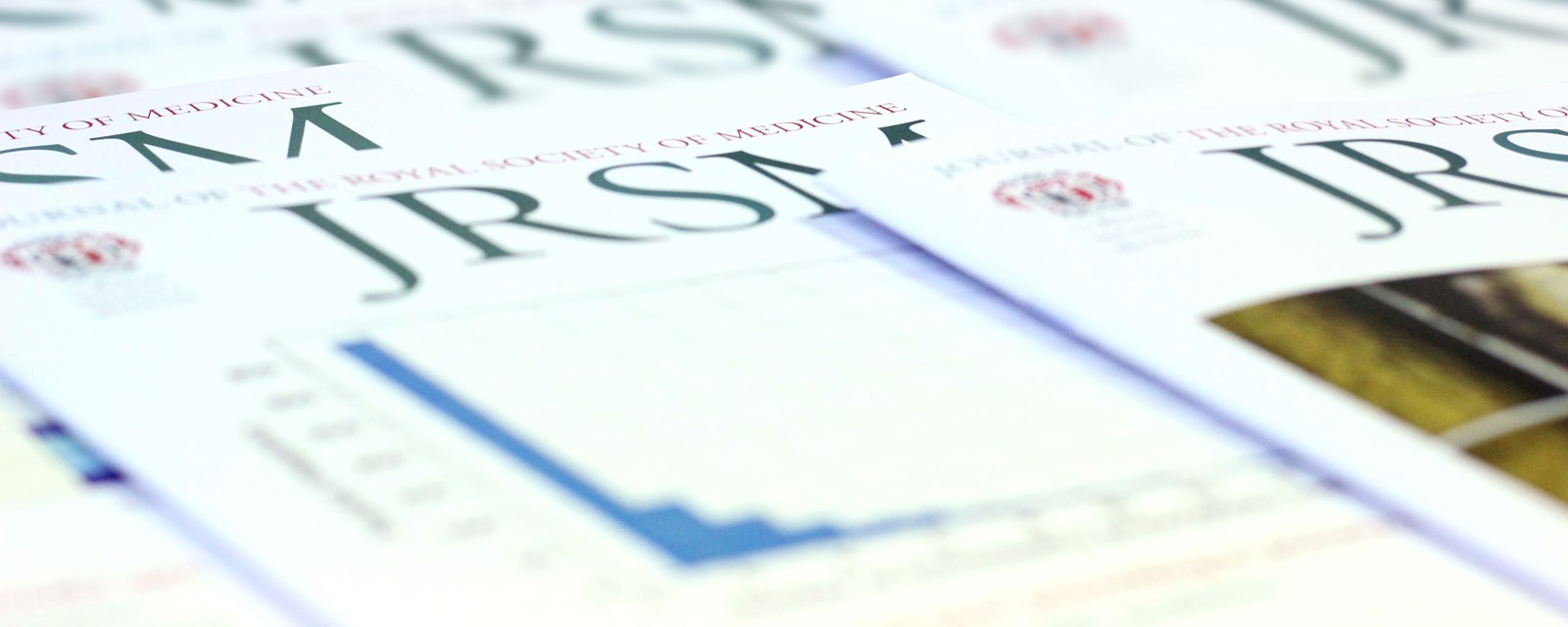
JRSM Editor in Chief explains how the journal is scaling new heights
In an interview for RSM Engage, Professor Kamran Abbasi, Editor in Chief of the Journal of the Royal Society of Medicine, explains how the long-term strategy for JRSM is reaping rewards and urges healthcare professionals to prioritise combating climate change and health inequalities in their work
The latest Journal Citation Reports rank JRSM 11th out of the world’s top 170 medical journals, up 13 places since last year and with a similarly impressive increase in Impact Factor from 5.344 to 18. What are the factors contributing to this great result?
KA: It's tremendous for a society journal in general medicine to achieve this ranking. The main reason for that success is the hard work of the excellent authors and peer reviewers who have contributed to JRSM during my editorship. We're selective about what we publish, and always strive for the highest quality content that's as topical and relevant as it can be. That focus on quality means that we follow best practice in peer review and publication ethics. All our research articles are also reviewed by a statistician. Readers play an important part here and our online usage continues to grow. We also provide an excellent service to authors in terms of press releasing and sharing their work. JRSM's trajectory has remained upwards for a number of years but we have published many important articles on the pandemic and that has undoubtedly boosted this jump in rankings. Overall, it's been a consistent long-term strategy and it's good to see progress.
How has JRSM evolved over the years? What was its original remit and what sort of articles can RSM members expect to find today when they open their latest issue of JRSM?
KA: Until the last 20 years or so, JRSM was rooted in the Society. That was a good thing. The RSM historically hosted many ground-breaking lectures and these would be published in the journal. However, times changed, and although the RSM is now a premier educational society for doctors and health professionals, the journal needed to attract authors and readers beyond the Society in order to grow. That was the clear remit when I was recruited as editor and it fitted perfectly with my own philosophy of how to evolve a medical journal. The other important factor is that JRSM is editorially independent of the RSM. I've also been supported on the strategy and on independence by deans, chief executives, and presidents of the RSM. I've appreciated their wisdom in freeing up JRSM, and that's why we are where we are today.
How long have you been involved with the Royal Society of Medicine? Could you give us a potted history of your work with the journal and in other areas of the Society’s work?
KA: I was appointed editor in 2005, when the impact factor of JRSM was less than 0.5. JRSM was ranked in the 3rd quartile of general medical journals. With only 12 issues a year, it was always going to be a long haul with a clear and consistent editorial strategy. My predecessor, Robin Fox, former editor of The Lancet, had done an excellent job in beginning to raise editorial standards. I built on that and sharpened the focus of the journal to publish fewer but higher quality articles. Other than my work with the journal, I was on the board of RSM Press before it was sold, and I also created RSM Videos, a lecture series based on meetings at the RSM and during that time worked very closely with the education department. I arrived at the RSM unsure what to expect as I wasn't especially familiar with the society and quickly grew to love it.
How are academic medical journals such as JRSM supporting healthcare professionals, who face such huge pressures in their day-to-day working lives, for example through the workforce issues facing health and social care?
KA: It's very hard for medical journals. We are trying to raise awareness about the challenges health professionals are facing. We are also offering solutions. But the problem is that policy makers aren't listening - not just to us but to anyone who disagrees with them. If we take the workforce, every serious and informed commentator knows that we're in a deep workforce crisis in the UK and that a clear plan is required to address it. Yet we still don't have a workforce plan. My personal view, and I've articulated this in many places, is that we need a radical change in society to prioritise outcomes related to health and wellbeing for people and the planet. If that is our starting point and focus, the best solutions to the workforce crisis and the many other pressures on the health professionals will receive the attention they deserve. Ultimately, a happy workforce will deliver even better care for patients.
As Editor in Chief of JRSM, you regularly publish papers related to climate change and health inequalities, which are among the most pressing challenges the world is facing today. What is your message to RSM members wishing to contribute to the debate about these important issues?
KA: Climate change is the single most serious threat to health and wellbeing. The importance of health inequalities is the single most important lesson from the pandemic, if it were needed. JRSM will continue to advocate on these issues and I'd urge RSM members to prioritise combating climate change and health inequalities in their work, and also encourage them to submit commentaries and research to us. It's important to build evidence and arguments that help create a better world, one that is stronger in its response to the climate crisis and to narrowing inequalities.
All RSM members have free access to the Journal of the Royal Society of Medicine as a benefit of membership. Sign into your RSM account and search for the journal in the e-resources.
